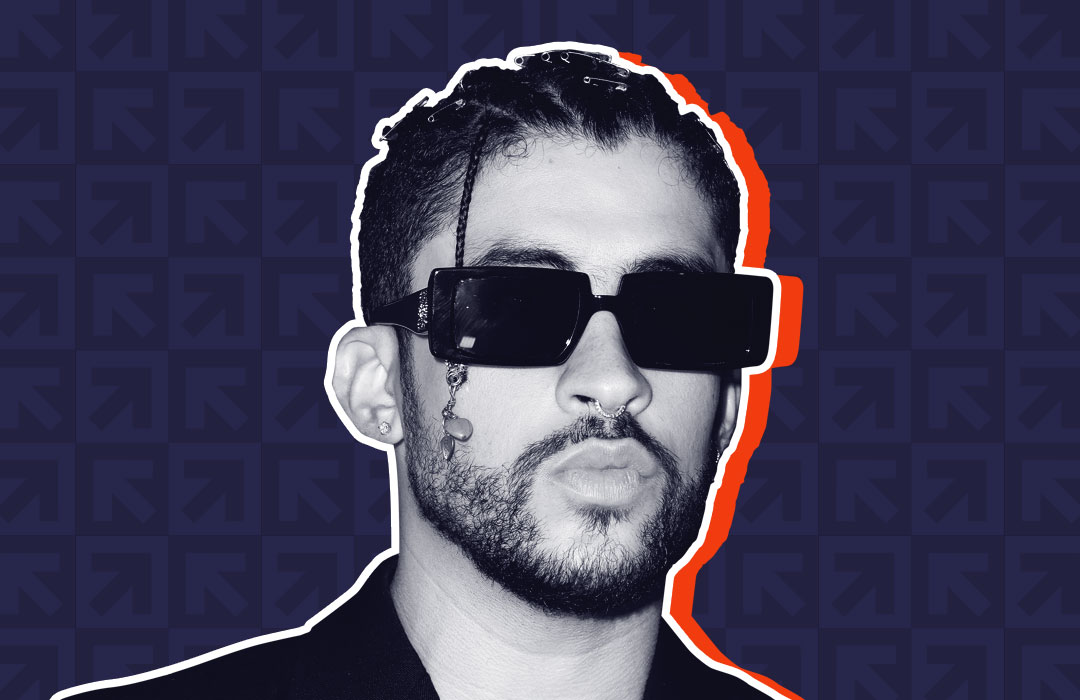Few artists are as intrinsically tied to their activism as Puerto Rican superstar Bad Bunny. For his fans, the rapper-singer is as beloved for his music as for his advocacy, much of which pushes for positive social and political change in the archipelago where he was born and raised.
Born to working-class parents about an hour west of San Juan in Vega Baja, a municipality where the median household annual income is just over $20,000, the Grammy-winning artist has become a multimillionaire.
And Bad Bunny — née Benito Antonio Martínez Ocasio — did it without wavering in his support for Puerto Rico.
“Everything I do is because I feel it,” he said in a recent interview with Apple Music. “There are days where the things I see bother me, and if I want to say something, I say it.”
He’s not quiet about it, either. Back in 2017, he rallied in person at massive local protests calling for the resignation of now-former Puerto Rican Governor Ricardo Rosselló after sexist and homophobic messages from his group chat leaked. Two years ago, he brought attention to the still-unsolved murder of a transgender Puerto Rican woman, Alexa Negrón Luciano, during a live performance on The Tonight Show with Jimmy Fallon.
While Bad Bunny’s turns at speaking out may vary in terms of subject, they all point back to one cause: a better quality of life for Puerto Ricans. And that includes their financial futures.
The most recent example came this past September, when he surprised audiences four and a half minutes into the music video for “El Apagón.” The song itself condemns the constant electrical blackouts — “apagón” literally translates to blackout — that have plagued Puerto Rico for decades.
But mid-song, the video cuts to a documentary. The short, titled Aquí Vive Gente, highlights more than the island’s challenges with infrastructure. The video takes aim at Act 22, a tax law granting exemption in capital gains and dividend income to investors who relocate and meet specific requirements. The provision in particular has received backlash because unlike other tax incentives in Puerto Rico, the capital gains extension is not available to locals.
It has attracted a number of wealthy individuals, including cryptocurrency investors and business owners whose investments into the island have created jobs and economic activity — but at the expense of gentrification. It’s certainly not uncommon for celebrities to take up social causes, and each does so at the risk of creating conflict. But few do this so brazenly as Bad Bunny.
YouTuber Logan Paul, who is positioned in the film as a person who relocated to Puerto Rico specifically to take advantage of Act 22, accused Bad Bunny of hypocrisy in an interview, claiming he’s “privately taking advantage of the same tax program that he is publicly condemning.”
Because Puerto Rico combined tax incentives including Act 22 and many others under Act 60 in 2019, Paul may be technically correct that Bad Bunny leverages one or several provisions of Act 60. But in his response, Paul failed to acknowledge that, like other native Puerto Ricans, Bad Bunny would be excluded from the capital gains incentive (formerly Act 22) that benefits newcomers like Paul exclusively.
Bad Bunny remains, hands down, one of Puerto Rico’s most famous and influential artists — and one of its beloved activists.






